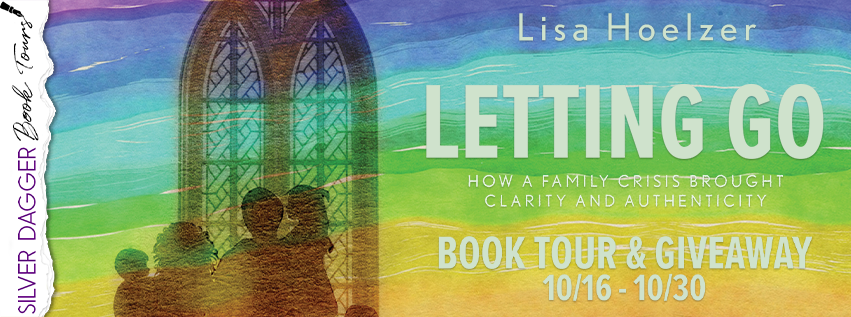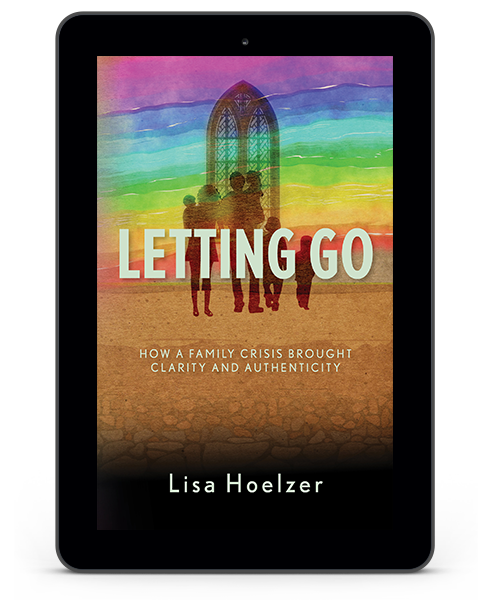What would you do if your religion forced you to choose between the church and your children?
Letting Go
How a Family Crisis Brought Clarity and Authenticity
by Lisa Hoelzer
Genre: Memoir
What would you do if your religion forced you to choose between the church and your children?
Letting Go recounts the story of how, when faced with a transformational crisis that could have destroyed her family, Hoelzer chose a difficult and forbidden path that would change her world and theirs for the better.
Lisa Hoelzer took being a stay-at-home mom to her four children very seriously. She studied parenting books and worked hard to improve and grow as a parent. She eventually created her own paradigm for parenting, which you can find at www.betterwayparenting.net.
An avid learner, Lisa has a bachelors in chemistry and a masters in social work. She is a lifelong student of the human psyche, including motivations, biases, mind management, and mental health. She writes about mind management on Medium. Lisa loves to read, write, and discover more about the world. Her other interests include anti-racism, LGTBQ-allyship, and spirituality after religion.
Her memoir, Letting Go: How a Family Crisis Brought Clarity and Authenticity will be out in October 2023. An essay based on an excerpt from the book was published in the literary journal Academy of Heart and Mind in November, 2022. She and her family have lived in New Orleans, Minnesota, and Utah.
Website * Instagram * Bookbub * Amazon * Goodreads
Many parents in our faith community would be distressed by this conversation, particularly the lack of interest in church. They would worry about their child following the precepts of the gospel and qualifying for heaven, and they would worry about the cohesiveness of their eternal family. “What if everyone else in the family made it to heaven, but this one child wasn’t there with us?” they might ask themselves. That would be tragic. I’ve heard a saying from members of our church: “No empty chairs in heaven.” Each person has a seat at the table, and if one of them doesn’t make it to heaven, there will be an empty chair, and the rest of the family members will be forlorn.
Bryan and I have both felt for years that this was a manipulative and fear-based concept. It implies that everyone must be the same and take the same path or something has gone horribly wrong. It also implies a lack of long-term perspective. Life is long. Sometimes children finding their own way come back to the church eventually, especially if they are treated with kindness and acceptance during their time away. The people who use this saying are well-meaning, but in essence it is a form of coercion to get your children to act how you want them to.
Bryan and I had decided long ago that instead of having a family motto centered on no empty chairs in heaven, we would focus on having no empty chairs at our earthly table. We wanted everyone in our family to feel comfortable with us and accepted by us, not judged for their actions or for who they are. We didn’t care what the church told us to do, we were going to keep our children close.
Needless to say, I was not distressed by Brooke’s answer. I understood that, in general, many people do not have the same interest in the church that I have, and I could especially understand why an LGBTQ person would not want to be involved. I was happy to set Brooke free of the restrictions of the church. I felt calm and comfortable with the idea that she would not participate in or be a part of the church anymore. But of course, there was that nagging thought in the back of my mind that I should care more, I should be more distressed. If I were a true believer, I would strongly desire that my family, as well as everyone else in the world, join and stay in the church.
Follow the tour HERE for special content and a giveaway!
$10 Amazon








This looks like an interesting novel. Thanks for hosting this.
ReplyDeleteThanks for stopping by Michael!
Delete